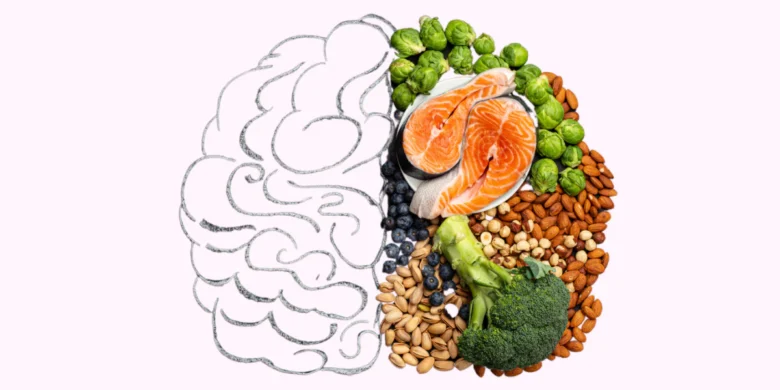Nutrition is crucial to cognitive performance, as the brain consumes 20% of your daily calories. Your daily diet affects your focus, processing power, and clarity of thought. Functional nutrition approaches food as medicine for brain health, not just as a way to meet basic needs. This approach recognizes that nutrients support brain networks, neurotransmitter synthesis, and cognitive function. You can develop a personalized nutrition strategy to understand which foods increase and decrease focus, thus improving your mental performance. This article shows you how to use functional nutrition to increase your mental acuity and keep you focused throughout the day.
Learn More About Functional Nutrition:
Functional nutrition is a paradigm shift from traditional diet to food as medicine. While traditional foods provide basic calorie and macronutrient needs, functional nutrition optimizes health by studying how nutrients interact with biological processes. Personalized nutrition techniques take into account genetics, lifestyle, and health goals. Functional nutrition seeks to discover foods that support neurotransmitter synthesis, reduce brain inflammation, and combat oxidative stress to promote cognitive health. Understanding how nutrients affect blood sugar levels, hormone release, and cellular energy production—all of which are crucial for mental focus—is essential. Functional nutrition can help you plan when to eat, choose food combinations, and avoid foods that disrupt your cognitive abilities.
Gut-Brain Connection:
Your digestive system is more closely linked to your brain function than most people realize. Scientists call the gut a “second brain” because it contains about 500 million neurons and produces neurotransmitters like serotonin and dopamine. Our gut flora—the bacteria, fungi, and other microorganisms in the digestive tract—are essential for producing chemicals that regulate your mood and attention. Poor diet, stress, or antibiotic use can compromise gut health, leading to brain fog, difficulty concentrating, and mental fatigue.
The vagus nerve is the main route of communication between the gut and the brain, and it affects your mood and memory. Research shows that maintaining healthy gut flora through diet can improve cognition, reduce anxiety, and increase mental clarity. This knowledge explains why stomach problems often go hand in hand with cognitive issues and why a healthy gut can significantly improve your focus and mental energy.
Foods That Boost Cognitive Function:
Studies have shown that the nutritional content of certain foods enhances brain health and cognition. Omega-3 fatty acids in salmon, sardines, and mackerel help maintain the integrity of brain cell membranes and neurotransmitter production. Anthocyanins in blueberries can cross the blood-brain barrier, reduce inflammation, and improve cognition. Spinach, kale, and arugula are rich in folate, vitamin K, and nitrates, which can promote blood flow to the brain and prevent cognitive decline.
Walnuts and pumpkin seeds, for example, are rich in healthy fats, vitamin E, and magnesium, which can improve brain communication and prevent oxidative stress. Eggs provide choline, essential for the production of acetylcholine, a neurotransmitter that enhances memory and learning. Avocados are rich in monounsaturated fats, which can increase blood flow to the brain, and the flavonoids in dark chocolate can improve mood and focus. L-theanine in green tea works with caffeine to calm alertness and improve concentration.
Avoid These Foods to Improve Concentration:
To maintain optimal concentration, you should limit or eliminate certain foods that impair cognitive ability. Refined sugars in processed foods can cause spikes and crashes in your blood sugar levels, which affect concentration and clarity of thought. Blood sugar spikes can cause inflammation throughout the body, including the brain, which can damage neuronal connections. Trans fats in processed and fried foods can cause inflammation and oxidative stress, which can reduce brain volume and memory.
Excessive caffeine intake, while refreshing, can also cause nervousness, anxiety, and crashes, which can affect concentration. Artificial sweeteners can disrupt the balance of gut flora, which affects cognition and the gut-brain connection. Processed foods high in sodium can lower blood pressure and oxygen delivery to the brain. Even small amounts of alcohol can disrupt sleep and neurotransmitter balance, which can impair cognition the next day. Identify and avoid foods that cause inflammation, as they can cause inflammation throughout the body, which can affect brain function.
Creating Your Eat for Focus Meal Plan:
An effective cognitive-enhancing meal plan requires strategic timing, good macronutrient intake, and a regular eating pattern. Start your day with a high-protein breakfast, and pair it with healthy fats and complex carbohydrates to keep your energy levels and blood sugar levels stable. A focus-boosting meal might include eggs and avocado on whole-grain toast or Greek yogurt with berries and nuts. Lunch is best with low-fat proteins, colorful vegetables, and healthy fats. Avoid high-carb, fatty foods that can cause an energy dip in the afternoon.
Dinner should be lighter but include brain-healthy fatty salmon, leafy greens, and colorful vegetables. In between meals, eat nuts, seeds, or a small amount of protein-rich fruit to keep your blood sugar levels stable. Timing your meals well is essential to staying focused throughout the day. Eat every 3–4 hours to prevent your blood sugar from dropping and to avoid full meals that divert your brain activity to the digestive system. Success requires planning, so prepare brain-healthy meals in bulk and keep focus-boosting snacks on hand to prevent impulsive eating that can affect your cognitive performance.
Lifestyle Improves Nutrition:
Diet is the cornerstone of your cognitive health, but lifestyle factors can also improve your mental performance. Adequate hydration is essential for brain function, as even mild dehydration can affect your concentration and memory. Drink water throughout the day and adjust your intake based on your activity and environment. A good night’s sleep is essential for cognitive function, as it consolidates your memory and flushes metabolic waste. Establish a healthy sleep routine and create a calming environment.
Regular exercise promotes blood flow to the brain, brain cell growth, and the production of neurological chemicals. Good nutrition and moderate activity, such as walking, can improve your cognition. Chronic stress hormones can affect your memory and cognitive flexibility, so stress management is essential. Practice meditation, deep breathing, or yoga daily to reduce stress. Finally, socializing and mental stimulation through learning new skills or engaging in demanding activities can improve your cognitive acuity and complement your nutrition.
Transformation Through Conscious Nutrition:
The science and art of functional diets for cognitive enhancement require patience, perseverance, and personal practice. Because your brain is highly adaptable, the changes you make to your diet today can improve your mental performance and quality of life. Remember that optimal brain performance requires a holistic strategy that includes diet, lifestyle, and personal needs, not just one superfood.
Try changing one or two foods at a time so your body and taste buds can adapt. Think about how different foods affect your energy, mood, and focus, and adjust your eating habits accordingly. Understanding and following the principles of functional eating will improve your focus, productivity, and mental resilience. Remember that consistency is more important than perfection and that small, sustainable changes often lead to the greatest long-term improvements in cognitive health and well-being.
FAQs:
1. How long does it take to see improvements in focus after changing my diet?
Most people see improvements in mental clarity and focus after 2–4 weeks of following a brain-healthy diet. However, avoiding processed foods and sugars can boost your energy and eliminate brain fog in a matter of days.
2. Can Supplements Replace Food for Cognitive Performance?
Supplements can improve cognition, but they should not replace a healthy diet. Whole foods contain various nutrients and synergistic components that pills cannot match. Consider taking targeted supplements after eating under the guidance of a professional.
3. Are there meal-timing strategies that can improve focus?
Yes, eating small, frequent meals every 3–4 hours can help stabilize blood sugar levels and brain energy. Avoid overeating, which can lead to energy crashes, and eat your largest meal in the morning when your metabolism is at its highest.
4. How does intermittent fasting affect cognition?
Ketone synthesis, a source of energy for the brain, can improve cognition in some people after intermittent fasting. Some people have difficulty focusing while fasting. Start fasting gradually and track your cognitive performance.
5. How does gut health impact mental clarity?
A healthy gut is crucial for cognitive function because the gut produces many neurotransmitters and connects to the brain via the vagus nerve. Inflammation, poor nutrient absorption, and abnormal neurotransmitters resulting from gut issues can affect concentration and mental clarity.




